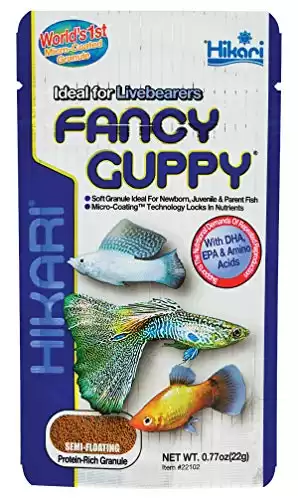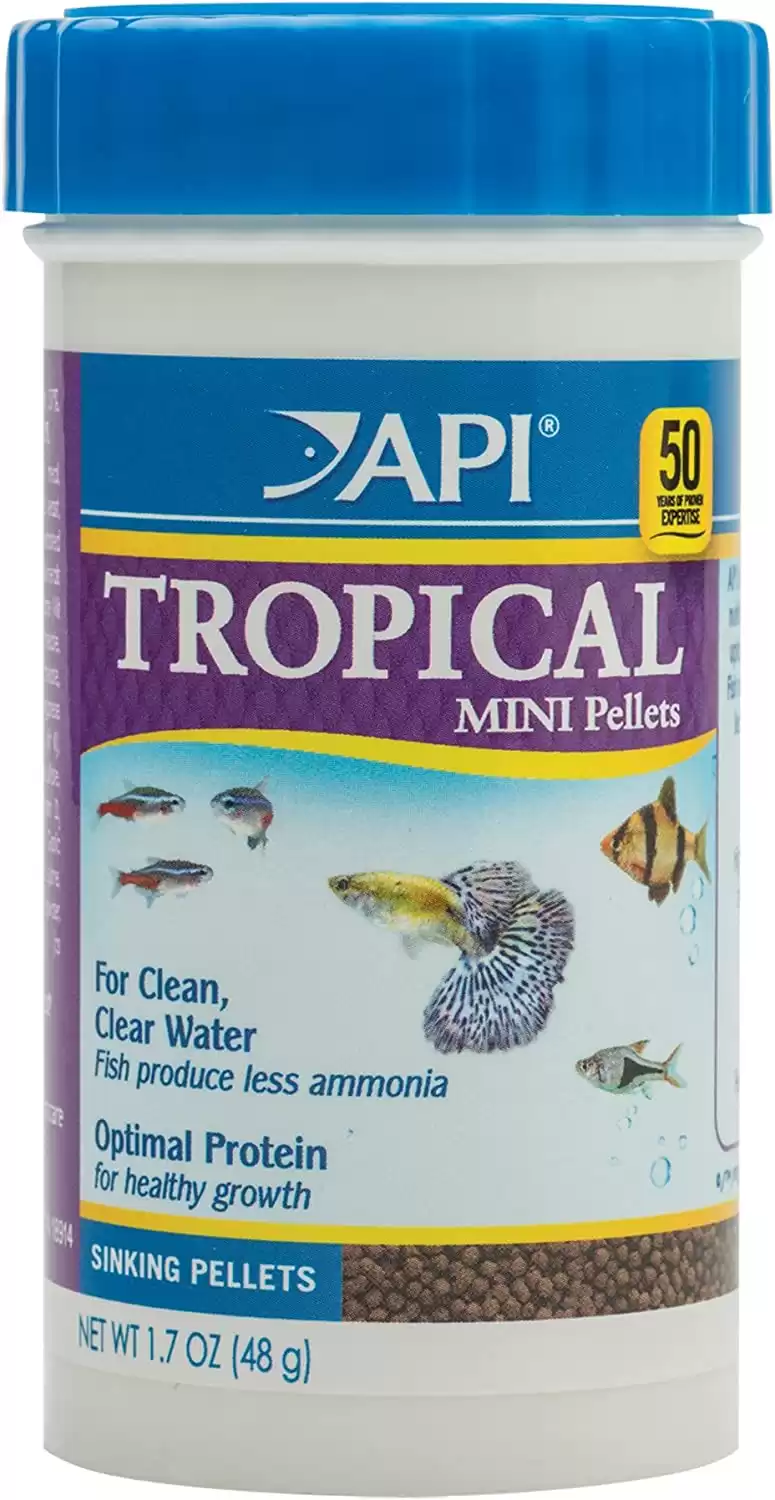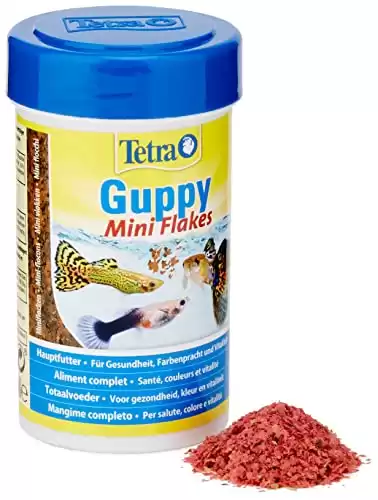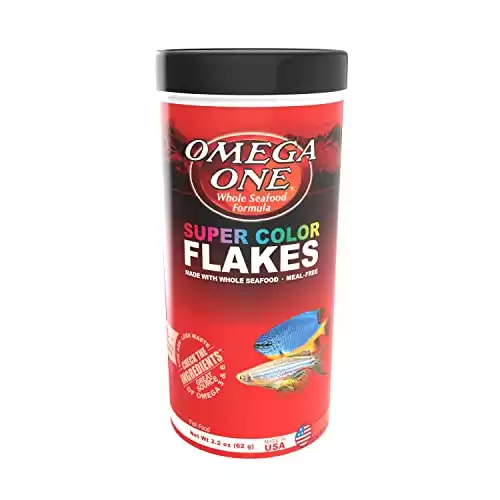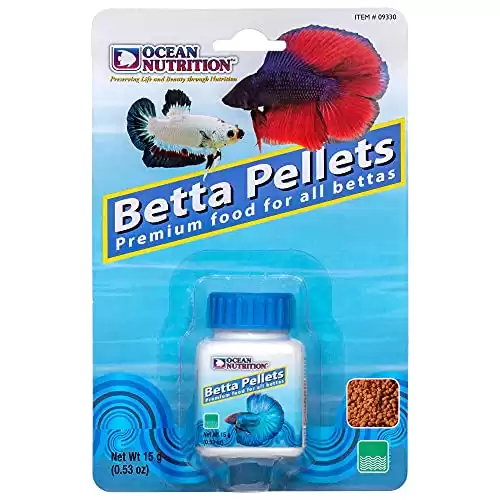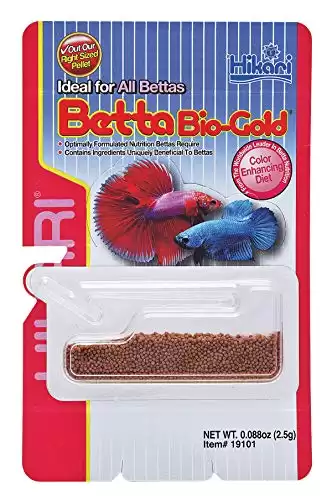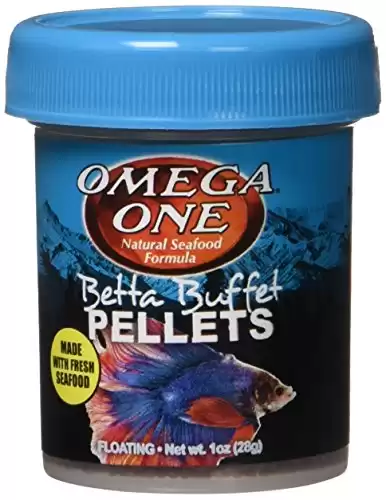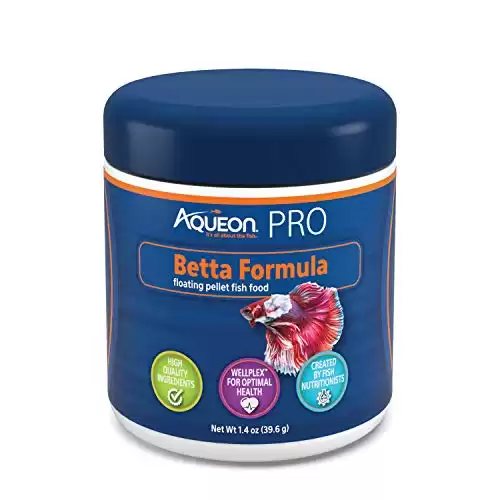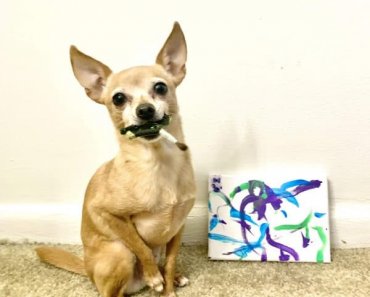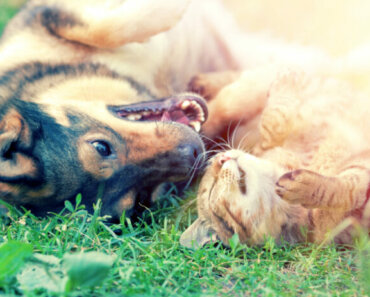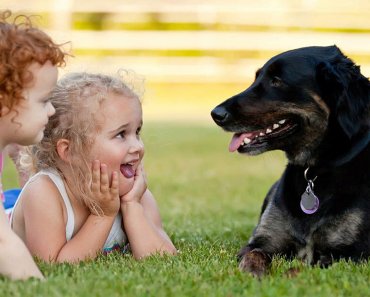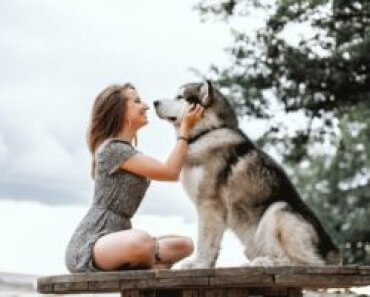For people who love tropical fish and enjoy watching them go about their various schooling and feeding routines, Guppies are often a favorite choice.
Also known as Millions fish because of their prolific breeding habit, Guppies come in over 300 varieties and are relatively easy to raise and care for in a smaller fish tank.
As well as providing your Guppies with a clean, hygienic environment in which to live, you’ll need to give your pets a correct, balanced diet.
So, what do Guppies eat, and can Guppies eat betta food? Read this guide to find out!
Can Guppies Eat Betta Food?
In theory, Guppies can eat betta food. However, Guppies are omnivores that need plenty of vegetable matter in their diet. In contrast, betta fish are primarily carnivorous, requiring a diet that contains mostly meaty protein.
That said, in a pinch, you could give your Guppies betta food to keep them happy until you can get to the fish store and buy them some suitable tropical fish food.
However, in a nutshell, a betta fish diet in isolation is not suitable for Guppies.
What Do Guppies Eat?
Guppies come from Northeast and South America, where they live in freshwater pools and streams throughout the Amazon.
Guppies are abundant in Guyana, Brazil, Barbados, Trinidad and Tobago, and Venezuela.
In their wild environment, Guppies eat both plants and meaty protein, as well as large quantities of algae. In addition, wild Guppies take insect larvae, invertebrates, brine shrimp, and diatoms.
Captive Guppy Diet

Guppies kept in fish tanks as pets enjoy a varied diet.
The fish do best on a basic diet of tropical fish flakes, veggie pellets, or Guppy pellets, as well as frozen foods, including brine shrimp, mosquito larvae, small bloodworms, and daphnia.
The following are all good choices of foods for Guppies:
- Hakari USA Guppy Food: Judged to be Best Overall. Small pellets in packs (improves breeding habits).
- API Guppy Food Mini Pellets: Contains tasty, high-protein foods like shrimp and other fish sources.
- Contains one (1) API TROPICAL MINI PELLETS Mini Sinking Pellets Fish Food 1.7-Ounce Container
- Contains key nutrients for a complete and balance diet for all tropical community fish
- Includes high-quality proteins, such as squid and shrimp, for optimal fish growth
- Formulated to help fish more readily use nutrients which means less waste and clean, clear water
- Tetramin Guppy Food: Best food for fish growth. Flakes provide an active life formula.
- Complete food for all Guppies
- Miniature flakes that are specifically designed for the small mouths of Guppies
- High content of vegetable ingredients and added minerals for improved palatability and growth
- With colour enhancers for bright colours
- Also suitable for other livebearers
- Omega One Guppy Food: Flakes laden with vitamins and minerals for enhancing coloration.
- SUPERIOR QUALITY: No meals, hydrolysates, digests, or any other pre-processed protein
- INSTRUCTIONS: Feed 1-3 times daily, using only as much food as fish can consume in two minutes
- GUARANTEED ANALYSIS: Min Crude Protein 42% / Min Crude Fat 12% / Max Crude Fiber 2% / Max Moisture 8.5% / Max Ash 8%
If you have a reliable supplier, you can offer your Guppies live food options, such as wingless fruit flies, bloodworms, and daphnia.
However, live food often comes with a cargo of parasites and bacteria, and you can never be sure just how fresh the food is.
So, unless you have your own home brine shrimp hatchery, it’s safer to stick to using frozen brine shrimp, bloodworms, etc., as meat-based proteins for your fish.
Dietary Differences
So, in theory, Guppies can eat betta food in limited quantities.
However, betta fish food is high in protein and fat, often as high as 40%, while Guppies need a more balanced diet of primarily plant-based meals, with 25% protein or less for optimal health.
Both bettas and Guppies need a balanced diet that provides them with what each species needs to ensure their best possible health, vitality, and color.
For example, small vegetable pellets will help to provide the Guppies with the correct balance of nutrition, i.e., protein, carbohydrates, vitamins, and minerals, to sustain their health and enable them to live long and active lives.
Vegetable pellets contain a variety of micronutrients, such as carotenoids, which enhance their colors, keeping your Guppies beautiful and vibrant.
However, your betta probably wouldn’t eat them. That can lead to uneaten food decomposing in the tank, meaning more time for aquarium owners to be spent cleaning.
Digestive Issues
Bettas can be prone to conditions such as bloat and constipation, which are both typically caused by dietary imbalances.
Guppies can also be susceptible to digestive issues if fed the wrong types of food in the wrong combination.
Betta Foods Suitable for Guppies
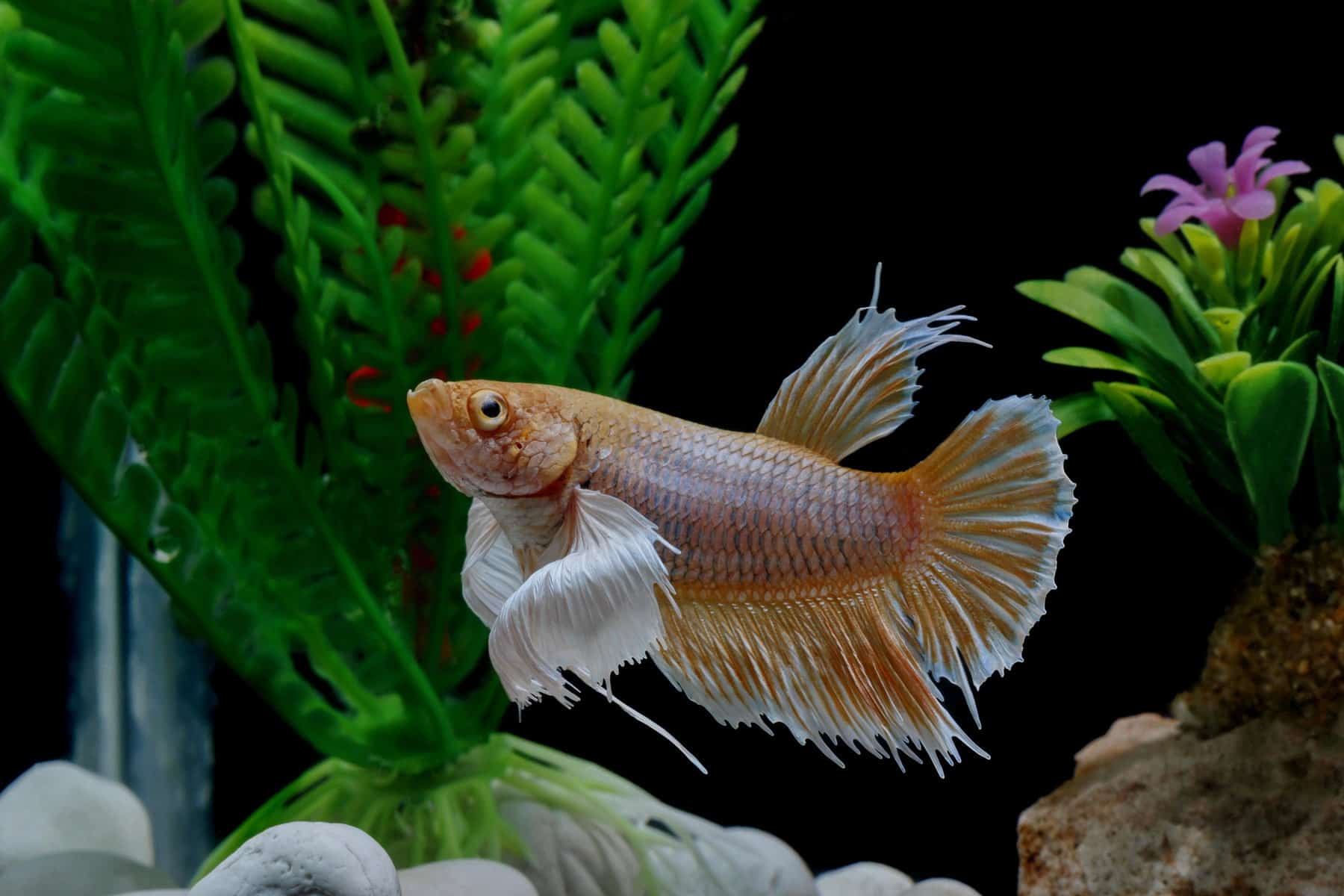
If you decide to try keeping a few Guppies with a betta, you’ll need to know what betta foods are the most suitable.
Betta food comes in various forms, including flakes, mini-pellets, and small pellets. Since bettas are surface feeders, most of the commercially produced betta foods are formulated to float on the water’s surface.
Guppies tend to hang around the middle of the water column, and they will also feed at the surface. So, floating food will suit Guppies, as well as bettas.
Several commercially prepared betta foods are also suitable for Guppies, including:
- Ocean Nutrition Betta pellets: Small-sized, crude protein, and 36% fat. Freshness is a consideration.
- Natural ingredient floating pellet food (+/- 1.5mm) for bettas six months and older
- Supplies daily nutrition
- Supports vibrant coloration
- Includes a mini spoon to make feeding easy
- Does not cloud the water when used as directed
- Hikari Betta Bio-Gold: Color-enhancing high protein with 38% fat for optimum Betta health.
- Daily diet perfectly suited for bettas and their high stress nature
- Premium fish meal provides a superior protein source
- Grape seed extract which has been shown to reduce the impacts of aging
- Bio-Technology provides active color enhancement
- Supports immune system health
- Omega One Betta Buffet pellets: High in crude protein; Made with fillers, so they do not float long.
- The only dry fish food in the world made directly from fresh seafood
- 100% meal free
- Rich in critical Omega 3 & 6 Fatty Acids
- Natural beta carotenes in salmon provide extreme color enhancement
We earn a commission if you make a purchase, at no additional cost to you.
- Aqueon Betta Food: Small pellets, high in crude protein; Made with fillers, so they do not float long.
Most of these foods sink fairly quickly after you’ve put them in the tank, where the Guppies can capitalize.
Can You Keep Guppies With Bettas?
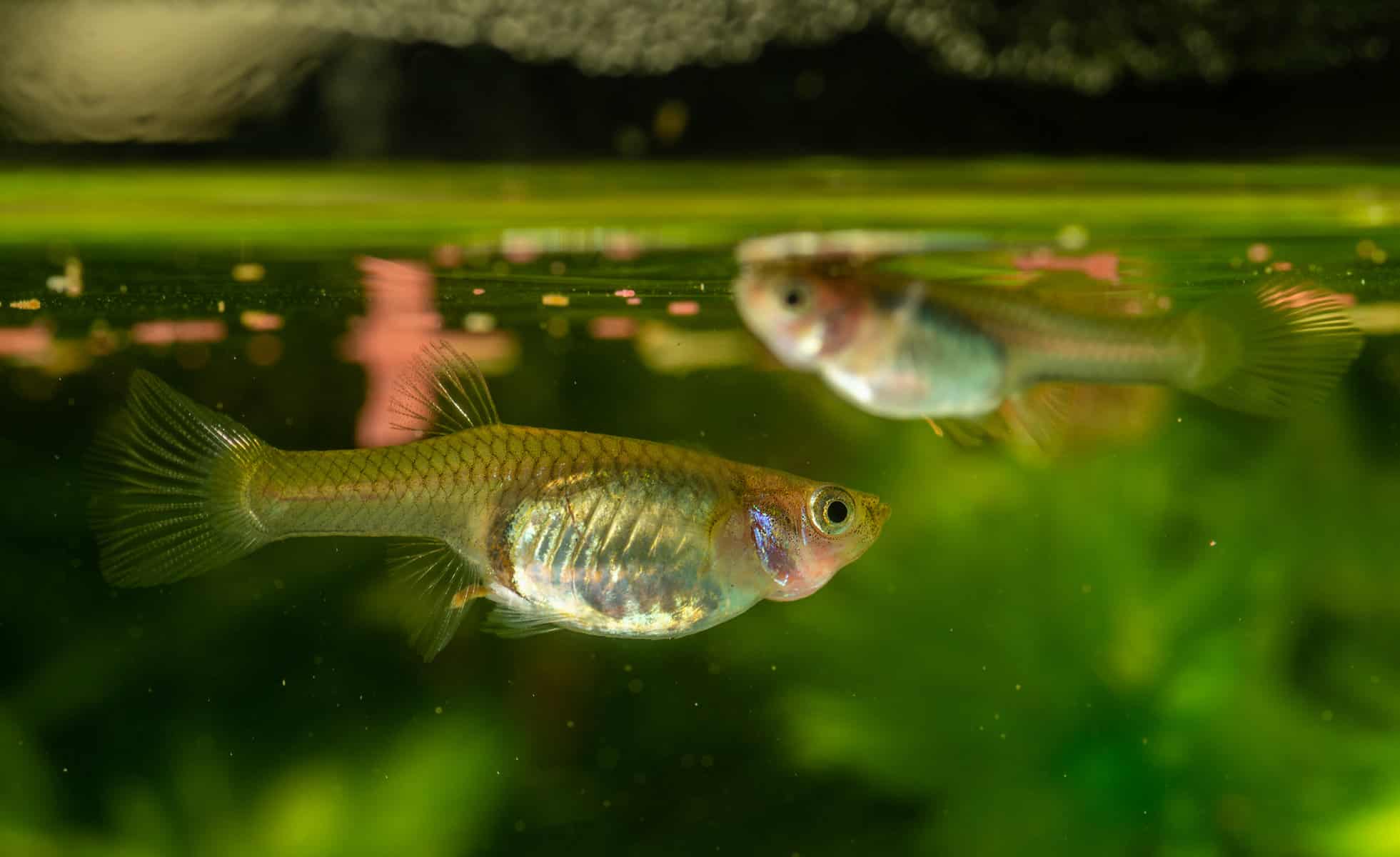
More experienced and adventurous fish keepers might want to try keeping Guppies with a betta fish in a mixed tank. However, that can be a recipe for disaster!
Unfortunately, although these two brightly colored fish species would make an excellent eye-catching display, Guppies do not make good tank mates for bettas.
The main problem is male Guppies are brightly colored with flashy, flowing tails. As far as your betta is concerned, a male Guppy could easily be mistaken for another male betta.
That often triggers aggression in bettas, potentially resulting in stress, injuries, and even fatalities.
However, female Guppies and those varieties sold as feeder fish generally lack the bright colors and flowing finnage of Fancy guppies and could be a safer option.
That said, feeder fish often carry diseases that could be passed to your betta, so we don’t recommend using these Guppies.
Final Thoughts
Did you enjoy our guide to whether Guppies can eat betta food? If you did, please take a moment to share it!
So, Guppies can eat betta food, although they need a more plant-based diet than your carnivorous betta buddy.
In addition, Guppies and bettas don’t make ideal tank mates. The Guppies’ bright colors and flowing finnage often trigger the betta’s aggressive tendencies, leading to fighting and possible injuries.
Betta food can be given to Guppies in an emergency, but we recommend using tropical fish flakes, frozen meaty foods for variety, and special Guppy pellets that contain color-enhancing compounds to make your fish really pop.

